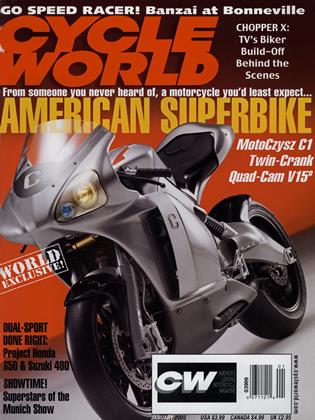FUTURE TECH: REPLACING POPPETS?
HAS THE INTERNAL-combustion piston engine reached its final form? Not if a raft of busy inventors have their way.
Consider rotating valves. These were initially of intense interest because of the chronic spring breakage, float and other maladies of the cam-and-spring-operated poppet valve. Darracq and Itala built rotary-valve engines in the early 20th century. NSU’s Dr. Froede proposed a flat, interrupted disc—much like those used for crankcase valving on Aprilia’s Grand Prix two-strokes—as a valve for a four-stroke motorcycle engine. Frank Aspin’s rotating valve was conical, and once interrupted progress at Velocette in the 1930s. Norton in the 1950s built a test engine with Roland Cross’ cylindrical rotary valve.
Where are they all now? Three central problems are: 1) maintaining a seal as the valve rotates during peak combustion pressure; 2) maintaining fit and lubrication as exhaust heat distorts parts; and 3) to achieve a reasonable combustion chamber shape, the valve elements must be small, but to open and close quickly, they must be large. A bonus problem is that of keeping lube oil from reaching the combustion space-the Norton/Cross engine made fair power but fouled sparkplugs.
The Coates Spherical Rotary Valve system taps at industry’s door. Its rotating element is an interrupted sphere, which can be sealed by a piston-ring-like circular seal. Away with nasty, floating poppet valves, replaced by two shafts-intake and exhaust-bearing valve spheres for each cylinder. There are no reciprocating parts-everything rotates. Formula One or MotoGP would seem an ideal first application. Where are the takers?
Every invention faces the problem of finding investors. Coates shows many engines with spherical valves, from natural-gas-burning generators to car engines and now a V-Twin cruiser utilizing a Harley-Davidsonstyle bottom end and transmission, said to be going into production for a starting price of $25,000.
This may prove to be an alternative to the conventional IC engine, just as the Wankel rotary has become. But Harley probably isn’t shaking in its boots just yet.
-Kevin Cameron
 View Full Issue
View Full Issue












